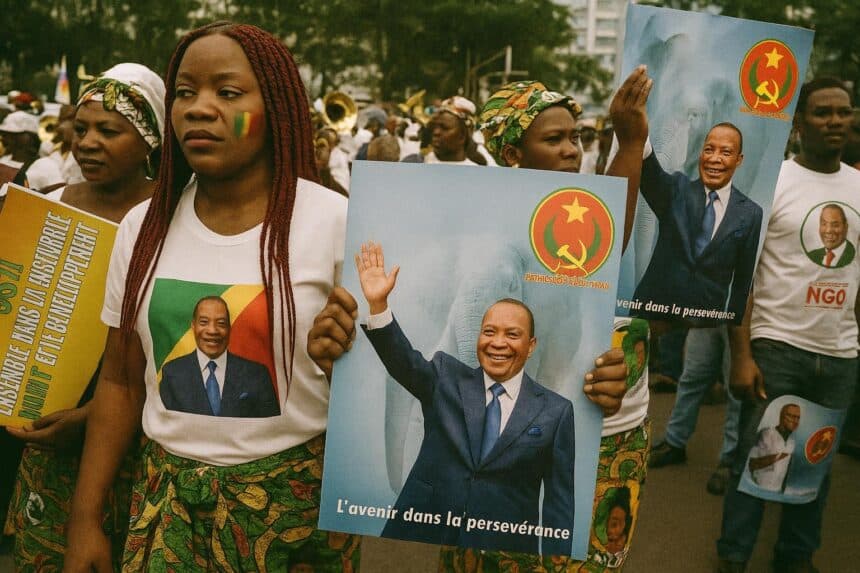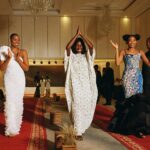Brazzaville’s Ruling Party Prepares Internal Calibration
The December congress of the Congolese Party of Labour (PCT) will constitute the first institutional temperature check ahead of the 2026 presidential election. Party officials have framed the meeting as a “strategic retreat” designed to fine-tune policy priorities and rejuvenate the party’s ideological corpus. In private, senior cadres concede that the gathering will also allow discreet benchmarking of generational aspirations now surfacing in urban sections of Brazzaville and Pointe-Noire. President Denis Sassou Nguesso’s advisers, according to diplomatic cables consulted in Brazzaville, intend to use the conclave to reinforce intra-party discipline while showcasing policy continuity in areas such as macro-economic stabilisation and post-pandemic health resilience.
Opposition Fragmentation and the Challenge of Coalescence
If the ruling party is engaged in measured choreography, the opposition remains locked in a centrifuge of competing egos. Veteran groupings such as the Pan-African Union for Social Democracy and the Congolese Movement for Democracy and Integral Development have struggled to transcend personality-driven politics since their modest showing in 2021. Civil society actors note that a new electoral code, endorsed by the National Assembly in June 2024, introduced more transparent counting procedures, yet the absence of a consolidated opposition platform continues to undermine any prospect of collective mobilisation (Jeune Afrique, 2024). The diaspora has experimented with digital primaries, but those efforts have so far yielded little more than social-media visibility. Western embassies in Brazzaville privately acknowledge that no single opposition figure has emerged with both national reach and organisational infrastructure.
Economic Variables: Oil Windfall and Fiscal Prudence
Congo-Brazzaville’s macro-economic narrative is more complex than headline figures suggest. Higher oil receipts in 2023-24, following bullish global benchmarks, allowed the Ministry of Finance to reduce domestic arrears and replenish the stabilisation fund. Yet the International Monetary Fund’s latest Article IV consultation underscores that public debt remains above 80 % of GDP, necessitating continued fiscal consolidation (IMF Country Report No. 23/245). The government, mindful of social expectations in the run-up to 2026, has ring-fenced spending on electricity inter-connection and the Special Economic Zone of Pointe-Noire, projects that the PCT congress is likely to elevate as symbols of inclusive growth. While multilateral lenders praise Brazzaville’s adherence to debt-service ceilings, private investors remain watchful of global energy transition debates that could erode long-term hydrocarbon revenue. In that sense, the electoral cycle compels a calibrated narrative: the administration must present prudence as strength, rather than austerity.
Regional Diplomacy and Security Externalities
The Republic of Congo enjoys a relatively insulated security environment compared with neighbours confronted by jihadist spill-overs. Nevertheless, instability in eastern Democratic Republic of Congo and the uncertain transition in Gabon pose indirect risks. Brazzaville has intensified shuttle diplomacy within the Economic Community of Central African States, positioning itself as a moderator without compromising the principle of non-interference (African Union communiqué, 2024). Analysts at the Institute for Security Studies argue that such activism reinforces the perception of President Sassou Nguesso as a regional elder statesman, a stature that could translate into additional domestic legitimacy at a time of wider Sahelian turbulence. Moreover, the Republic’s ongoing participation in UN peacekeeping discussions enables the executive to project foreign-policy maturity that resonates with both domestic elites and international partners.
Testing Digital Mood and Youth Expectations
Brazzaville’s political temperature increasingly circulates through encrypted messaging channels rather than traditional rallies. A June 2024 survey by the Central African Research Network indicates that 62 % of Congolese aged 18-30 obtain political information primarily on mobile devices. Government communication strategists have responded by expanding the ‘Dialogue Citoyen’ platform that streams ministerial Q&A sessions in Lingala and Kituba. Critics argue that bandwidth costs inhibit universal participation, yet the initiative underscores the administration’s recognition of changing information ecologies. Youth activists, many of whom cut their teeth during pandemic lockdown debates, now articulate policy interests in vocational training and climate adaptation rather than pure regime change. That evolving agenda complicates any simplistic binary between incumbency and opposition, while providing the presidency with an opportunity to foreground reforms such as the National Employment Pact unveiled last September.
Scenarios for 2026 and Diplomatic Takeaways
Several foreign observers privately describe the 2026 poll as “predictable but not irrelevant.” On the predictable side, the PCT’s formidable territorial machinery, coupled with the constitutional framework set by the 2015 referendum, renders continuity highly probable. Yet unpredictability surfaces in the form of voter turnout, urban cost-of-living pressures and a mercurial information landscape prone to external disinformation campaigns. Diplomatic missions have begun discreet scenario planning that ranges from overwhelming first-round victory to an unexpectedly competitive run-off should opposition forces coalesce around a single technocratic candidate. In every case, Brazzaville’s international partners emphasise the importance of maintaining the stable macro-economic environment that has allowed international oil companies to project upstream investment schedules beyond 2030. For now, the December congress will function as a symbolic prologue, offering analysts a rare public window onto the internal equilibriums of a party that has successfully managed political succession for decades. In that sense, the road to 2026 may appear well-lit, yet the terrain still warrants the cautious footing of any seasoned diplomat.




















